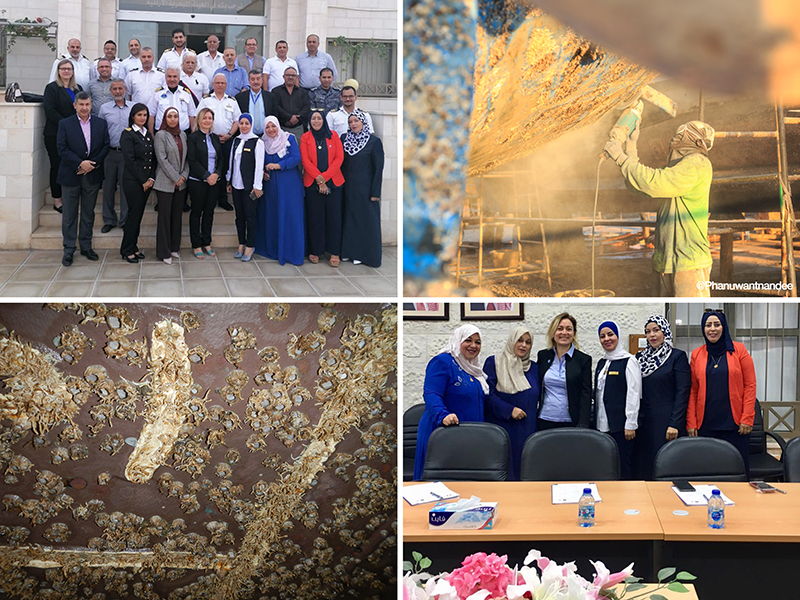Tackling invasive aquatic species in Jordan
Wednesday, 13 November 2019
Biofouling is the build-up of aquatic organisms on a ship's underwater hull and structures. It can be responsible for introducing potentially invasive non-native aquatic species to new environments and can also slow a ship down and impact negatively on its energy efficiency.
A two-day workshop was held in Aqaba, Jordan (11 to 12 November) to raise awareness of the problem and the impact it is having along the Jordanian coastline. Participants discussed a wide range of topics including biofouling as a pathway for non-indigenous species and approaches on how biofouling should be controlled and managed to minimize the transfer of invasive aquatic species through ships' hulls.
Amongst the participants were representatives of various maritime sectors, including marina ports and civil society organizations, including the Arab Women In Maritime Association (AWIMA).
Participants agreed on the establishment of a National Task Force as well as the creation of a communication platform for all its members, which will be key in defining a national policy on biofouling and invasive species. They agreed to draft a national strategy and action plan to implement the IMO Biofouling Guidelines.
The next step for the GloFouling Partnerships in Jordan will be to develop national baseline reports to assess the current situation regarding non-indigenous species and biofouling management practices.
The workshop was co-organized and hosted by the Jordan Maritime Commission. It is part of efforts under the GEF-UNDP-IMO GloFouling Partnerships Project, which aims to establish regional partnerships and cooperation agreements to address marine biofouling issues.




